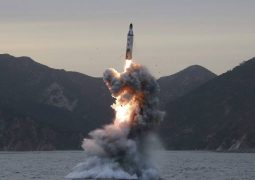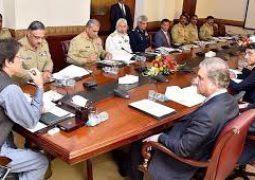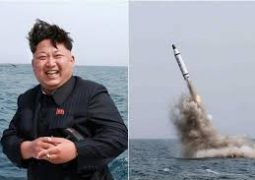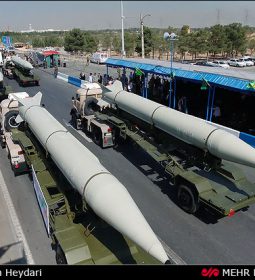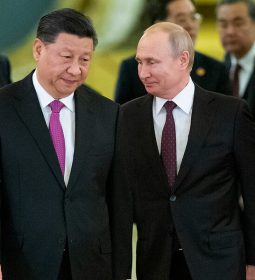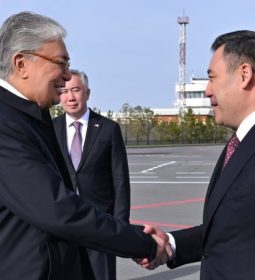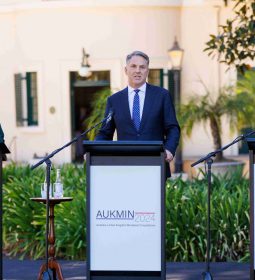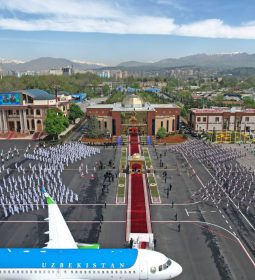White House Options on North Korea Include Use of Military Force The strategy review comes as recent events have strained stability in Asia
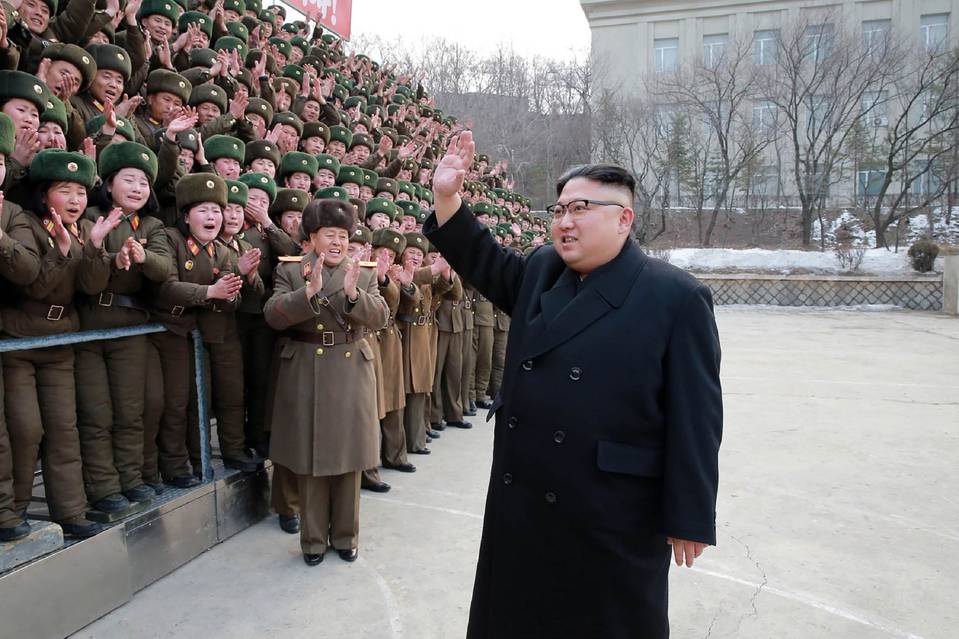
An internal White House review of strategy on North Korea includes the possibility of military force or regime change to blunt the country’s nuclear-weapons threat, people familiar with the process said, a prospect that has some U.S. allies in the region on edge.
While President Donald Trump has taken steps to reassure allies that he won’t abandon agreements that have underpinned decades of U.S. policy on Asia, his pledge that Pyongyang would be stopped from ever testing an intercontinental ballistic missile—coupled with the two-week-old strategy review—has some leaders bracing for a shift in American policy.
The U.S. review comes as recent events have strained regional stability. Last month, North Korea launched a ballistic missile into the Sea of Japan, and the estranged half brother of North Korean leader Kim Jong Un was assassinated in Malaysia.
Chinese and North Korean officials are holding talks in Beijing, the first known high-level meeting in nearly a year, and Beijing recently curtailed coal imports from North Korea.
U.S. officials have underscored the possible military dimensions of their emerging strategy in recent discussions with allies, according to people familiar with the talks.
During Japanese Prime Minister Shinzo Abe’s two-day summit in February with Mr. Trump, U.S. officials on several occasions stated that all options were under consideration to deal with North Korea, according to a person familiar with the discussions.
It was clear to the Japanese side that those options encompassed a U.S. military strike on North Korea, possibly if Pyongyang appeared ready to test an ICBM, this person said. The Japanese side found that scenario “worrisome,” he said.
U.S. allies in recent years have closely aligned with Washington in trying to increase diplomatic and economic pressure on Pyongyang in an effort to force it to drop its nuclear program. But the new U.S. policy review has generated anxiety in Japan and South Korea about a radical shift. After North Korea said earlier this year it was ready to test an ICBM, Mr. Trump wrote on Twitter, “It won’t happen!”
About two weeks ago, Deputy National Security Adviser K.T. McFarland convened a meeting with national-security officials across the government and asked them for proposals on North Korea, including ideas that one official described as well outside the mainstream.
The request was for all options, ranging from U.S. recognition of North Korea as a nuclear state to military action against Pyongyang. Ms. McFarland’s directive was for the administration to undergo a comprehensive rethink of America’s North Korea policy.
The national-security officials reported back to Ms. McFarland with their ideas and suggestions on Tuesday. Those options now will undergo a process under which they will be refined and shaped before they’re given to the president for consideration.
The heightened prospect of U.S. military action in North Korea could encourage China, which fears the fallout of a military confrontation with its neighbor, to take steps Washington has long sought to choke off Pyongyang’s economic lifeline.
In the wake of Mr. Trump’s election, leaders in Tokyo and Seoul have sought to intensify the existing U.S. strategy of exerting economic and diplomatic pressure against North Korea.
“We will make sure that the North changes its erroneous calculations by further enhancing sanctions and pressure,” South Korea’s acting President Hwang Kyo-ahn said in a speech on Wednesday.
South Korea and the U.S. kicked off major annual military exercises on Wednesday, part of a long-running strategy of prioritizing defensive military preparedness to ward off North Korean aggression.
After North Korea tested a ballistic missile last month just as Messrs. Abe and Trump were meeting in Florida, the Japanese leader called for Pyongyang to comply with a United Nations ban on such tests and said Tokyo and Washington would strengthen their alliance.
In his own brief remarks after Mr. Abe, Mr. Trump didn’t mention North Korea, saying only that the U.S. “stands behind Japan, its great ally, 100%.”
Japan is concerned it could get sucked into a regional conflict by a U.S. military strike on North Korea, said Tetsuo Kotani, a senior fellow at the Japan Institute of International Affairs, a Tokyo think tank.
Another fear for Japan is a scenario in which the U.S. instead holds talks with North Korea and reaches a deal that would lead to Washington disengaging from the region, he said.
Under its pacifist constitution, Japan remains heavily dependent on U.S. military support, not only to counter North Korea, but also China, which has stepped up a territorial challenge against Japanese-administered islands in the East China Sea.
“Direct talks between Mr. Trump and Kim Jong Un would be a nightmare scenario for Japan,” Mr. Kotani said.
Mr. Trump has recently stated the U.S.’s commitment to defending both Japan and South Korea to leaders of both countries. A spokeswoman for Japan’s foreign ministry declined to comment on the details of Mr. Abe’s talks with Mr. Trump, while a spokesman for South Korea’s foreign ministry couldn’t be reached for comment.
As annual military exercises were set to begin, U.S. Defense Secretary Jim Mattis spoke Tuesday to South Korean Defense Minister Han Min-Koo, emphasizing that “any attack on the United States or its allies will be defeated, and any use of nuclear weapons will be met with a response that is effective and overwhelming,” said the Pentagon spokesman, Capt. Jeff Davis.
The U.S. is in the process of installing advanced missile defenses, known as the Terminal High Altitude Area Defense system, in South Korea. As part of that, South Korea said this week that it has completed a transfer of land needed as a station for the system, Capt. Davis said.
Despite concerns about a military confrontation between the U.S. and North Korea, the acceleration of Pyongyang’s nuclear and missile program has emboldened calls by military hawks in Japan and South Korea for capabilities to pre-emptively hit North Korean military facilities if an attack appears imminent.
Masahiko Komura, the vice president of Japan’s ruling Liberal Democratic Party, said recently that Japan should begin discussing whether to acquire such an ability. In parliament, Mr. Abe said there were no plans to do so.
Write to Carol E. Lee at carol.lee@wsj.com and Alastair Gale at alastair.gale@wsj.com
- Previous Syrian pro-government forces near ISIS-held Palmyra
- Next Islamic State Video Threatens China With Homegrown Fighters Video appears to show recruits from China’s mostly Muslim Uighur minority threatening to ‘avenge oppression’



